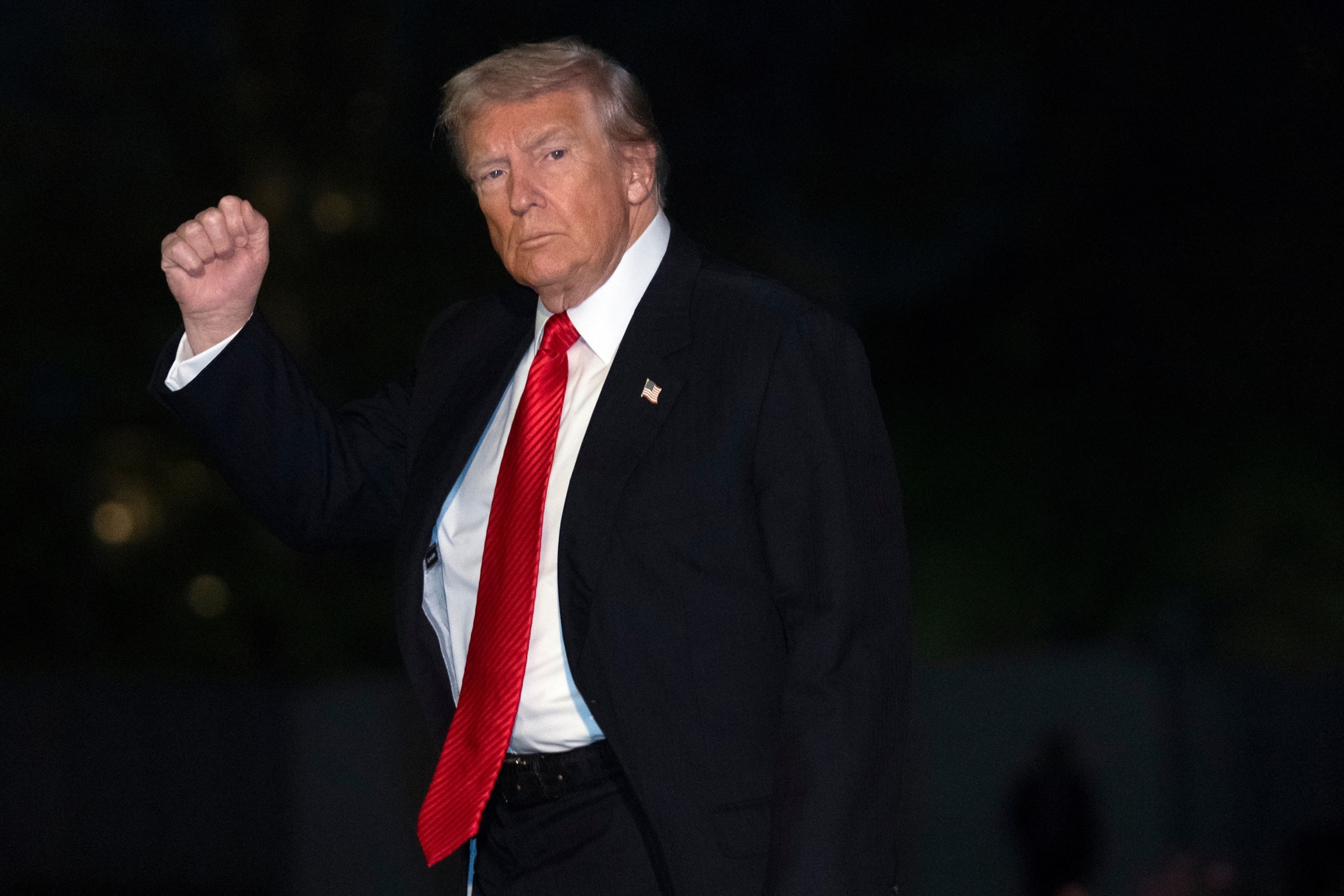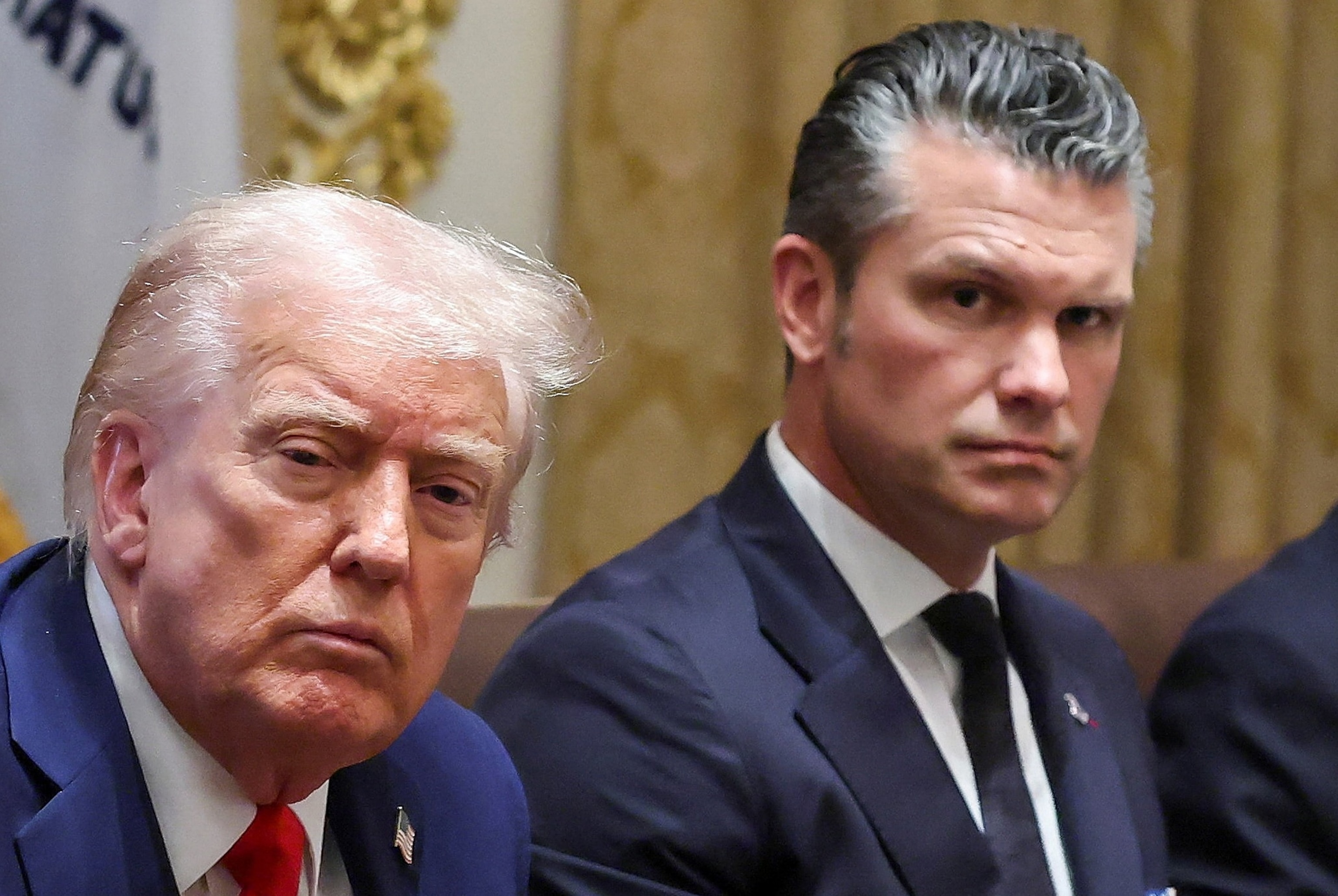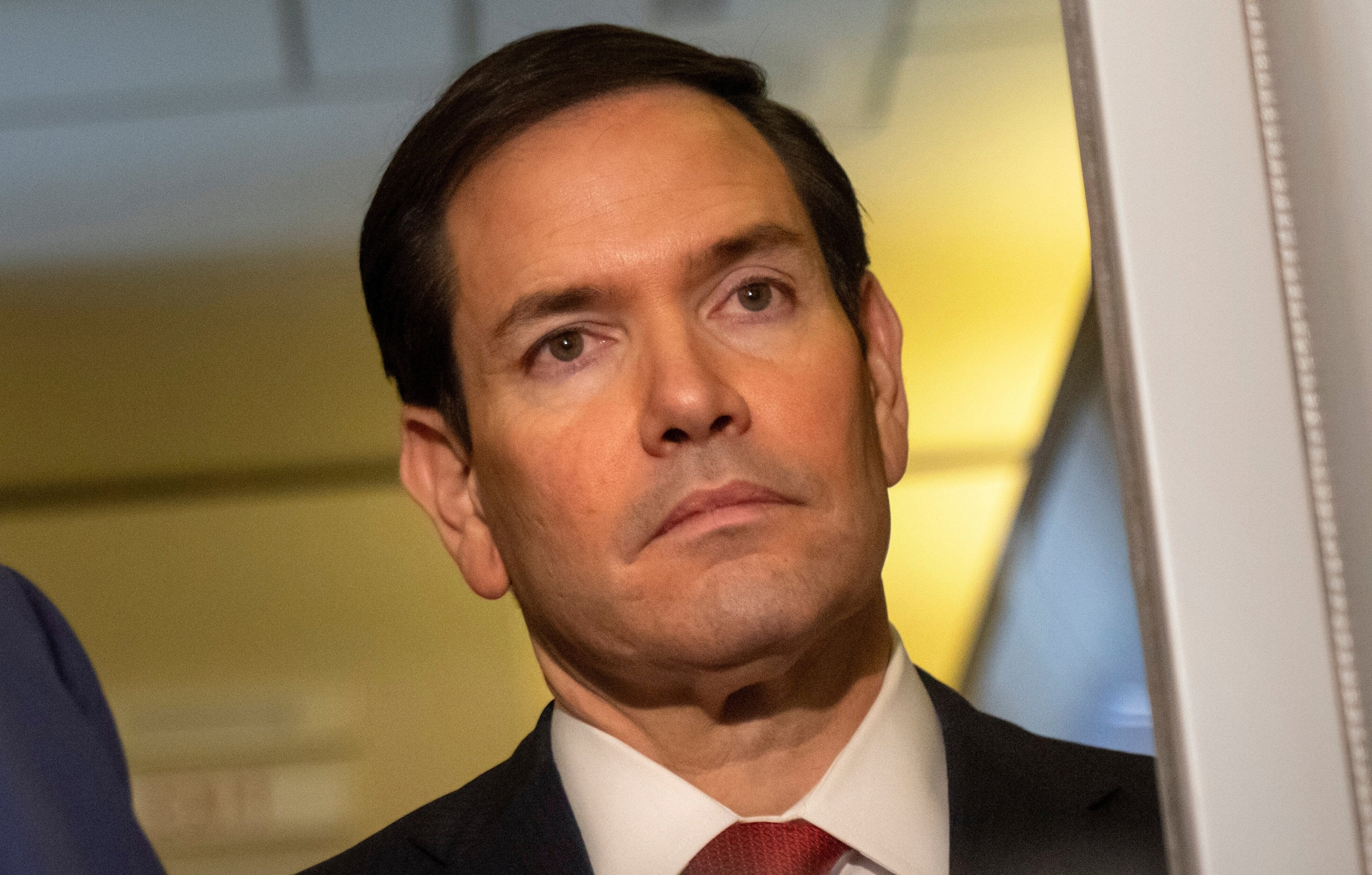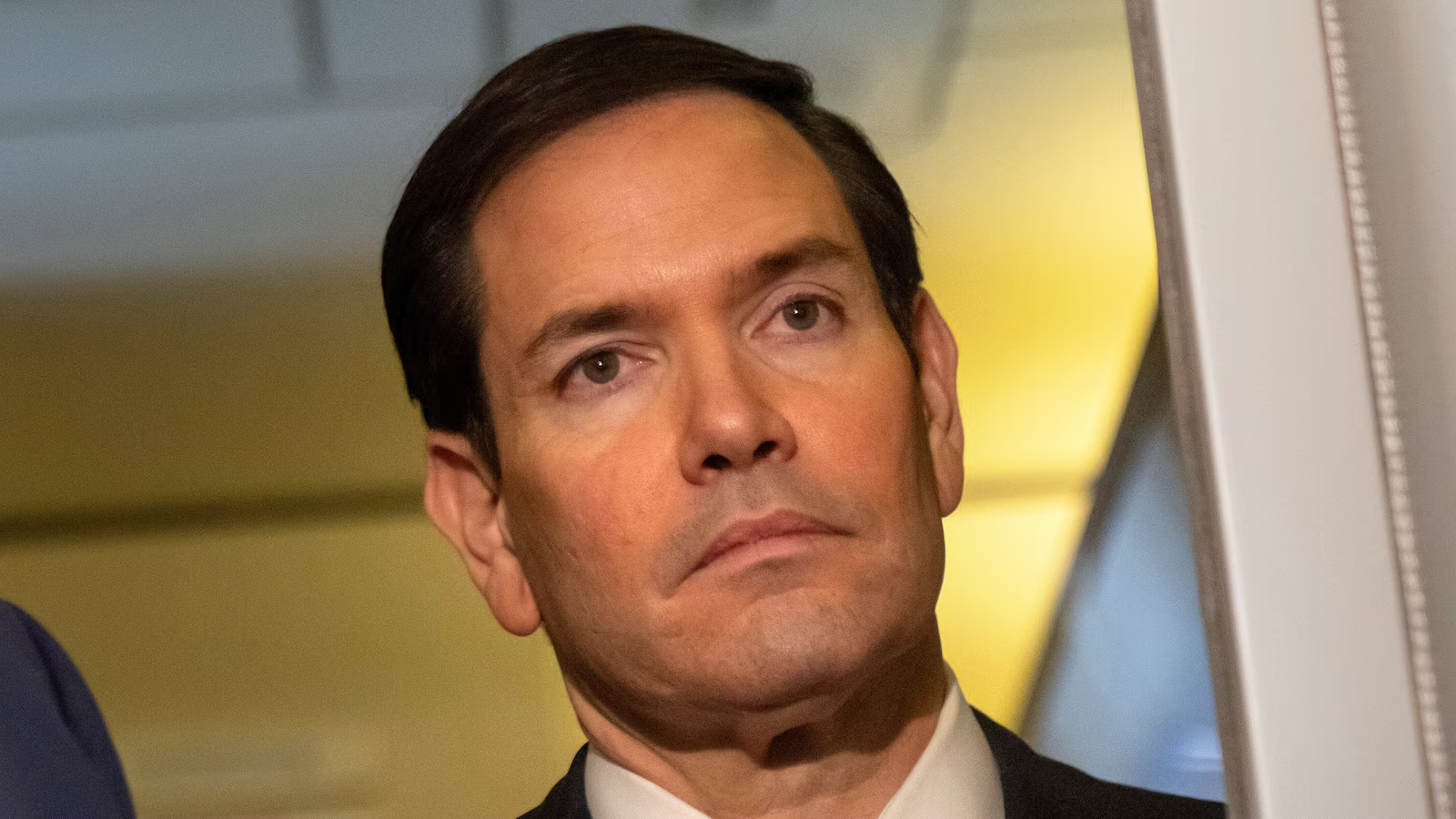The State Department on Monday officially updated its designation for Nigeria as a “Country of Particular Concern” for its alleged severe violations of religious freedom and persecution of Christians.
The CPC label is given by the U.S. government to nations “engaged in severe violations of religious freedom” under the International Religious Freedom Act of 1998. The designation is largely symbolic, but U.S. law states that governments must “take targeted responses to violations of religious freedom.”

President Donald Trump gestures while walking across the South Lawn of the White House, Sunday, Nov. 2, 2025, in Washington, after returning from a trip to Florida.
Mark Schiefelbein/AP
The move comes after President Donald Trump accused the Nigerian government of not doing enough to protect Christians from violence. He also instructed the Pentagon on Saturday to prepare for possible action in Nigeria and threatened to cut U.S. aid.
The secretary of state is responsible for deeming a country a “Country of Particular Concern” (CPC). Other countries designated as CPCs include Burma, the People’s Republic of China, Cuba, Eritrea, Iran, the Democratic People’s Republic of Korea, Nicaragua, Pakistan, Russia, Saudi Arabia, Tajikistan, and Turkmenistan.
Trump previously designated Nigeria as a CPC in December 2020 during his first term in office, but that designation was reversed the following year under the Biden administration.
Obama Secretary of State Antony Blinken removed Nigeria from the CPC designation list in November 2021 after assessing it did not meet the criteria a formal designation of concern regarding “systematic, ongoing, and egregious” violations of religious freedom.
The U.S. Commission on International Religious Freedom blasted the move at the time and said the decision to remove Nigeria from the special designation was “unexplainable” and appalling.

President Donald Trump and Defense Secretary Pete Hegseth attend a cabinet meeting at the White House in Washington, October 9, 2025.
Evelyn Hockstein/Reuters
According to the State Department, the International Religious Freedom Act requires an annual review of the status of religious freedom worldwide and the designation of countries that have “engaged in or tolerated particularly severe violations of religious freedom” during the reporting period.
The IRFA defines particularly severe violations of religious freedom as “systematic, ongoing, egregious violations of religious freedom, including violations such as torture, degrading treatment or punishment, prolonged detention without charges, abduction or clandestine detention, or other flagrant denial of the right to life, liberty, or the security of persons,” according to the State Department.
After a country has been designated a CPC by the secretary of state, Congress is then notified, and where non-economic policy options designed to bring about cessation of the particularly severe violations of religious freedom have reasonably been exhausted, an economic measure generally must be imposed, the State Department states.

Secretary of State Marco Rubio listens as President Donald Trump speaks to reporters aboard Air Force One while traveling from Kuala Lumpur, Malaysia, to Tokyo, Japan, Oct. 27, 2025.
Mark Schiefelbein/AP
Congress will investigate
Trump called on Rep. Riley Moore, a Republican from West Virginia, to lead an investigation into the alleged slaughtering of Christians in Nigeria. Moore has been a vocal advocate for Christians in Africa. Last month, he called on Secretary of State Marco Rubio to designate Nigeria as a country of particular concern.
Moore applauded Trump’s move over the weekend and said he and House Appropriations Committee chairman Tom Cole, and the House Foreign Affairs Committee would investigate the alleged religious persecution.
In August, GOP Sen. Ted Cruz of Texas introduced a bill calling for sanctions against Nigeria for purported violations of religious freedom and to designate Nigeria as a CPC.
In March 2025, the House Foreign Affairs Subcommittee on Africa held a hearing to discuss “Conflict and Persecution in Nigeria” and the case for designating Nigeria a CPC.
According to Moore’s office, more than 7,000 Christians have been killed in Nigeria in 2025 alone — an average of 35 per day — with hundreds more kidnapped, tortured, or displaced by extremist groups such as Boko Haram, ISIS West Africa, and the Fulani militants. According to Moore’s office, reports indicate that between 50,000 and 100,000 Christians have been killed and more than 19,000 Christian churches have been attacked or destroyed since 2009. Data from Open Doors indicate that more Christians are killed every year in Nigeria than the rest of the world combined.
But those numbers have been widely disputed.
Extremist violence in the country “affects large numbers of Christians and Muslims in several states across Nigeria,” the United States Commission on International Religious Freedom found in 2024.
Experts say both Christians and Muslims — the two main religious groups in the country of more than 230 million people — have been victims of attacks by radical Islamists.
Nigerian President Bola Ahmed Tinubu has also pushed back against Trump’s and other lawmakers’ claims, writing “The characterisation of Nigeria as religiously intolerant does not reflect our national reality, nor does it take into consideration the consistent and sincere efforts of the government to safeguard freedom of religion and beliefs for all Nigerians.”
Trump threatens to halt U.S. aid
The U.S. committed approximately $1.02 billion in aid to Nigeria for fiscal year 2023, according to U.S. government figures.
Slightly less aid was reported for FY2024 at $902.9 million.
And even less in foreign aid to Nigeria is projected for FY2025 — roughly $550 million has been obligated for the year, though the data is incomplete. It’s unclear how much aid Trump is considering cutting.
Despite the shuttering of the U.S. Agency for International Development and cuts to all U.S. foreign aid, the U.S. government announced a contribution of $32.5 million to Nigeria in September 2025 that would “provide food assistance and nutrition support to internally displaced persons across conflict-affected areas,” according to the U.S. Embassy and Consulate in Nigeria.
Trump gets celebrity endorsement
Rapper Nicki Minaj thanked Trump for his tweet addressing persecution of Christians in Nigeria over the weekend. Minaj is not Nigerian; she is Trinidadian.
“Reading this made me feel a deep sense of gratitude. We live in a country where we can freely worship God. No group should ever be persecuted for practicing their religion,” Minaj said on X. “We don’t have to share the same beliefs in order for us to respect each other. Numerous countries all around the world are being affected by this horror & it’s dangerous to pretend we don’t notice. Thank you to The President & his team for taking this seriously. God bless every persecuted Christian. Let’s remember to lift them up in prayer.”
U.S. Ambassador to the United Nations Mike Waltz thanked Minaj for “using your platform to speak out in defense of the Christians being persecuted in Nigeria.”
He also invited her to talk more in depth about what the administration is doing to protect Christians around the world. “We cannot allow this to continue,” Waltz added. “Every brother and sister of Christ must band together and say, ‘Enough!'”

